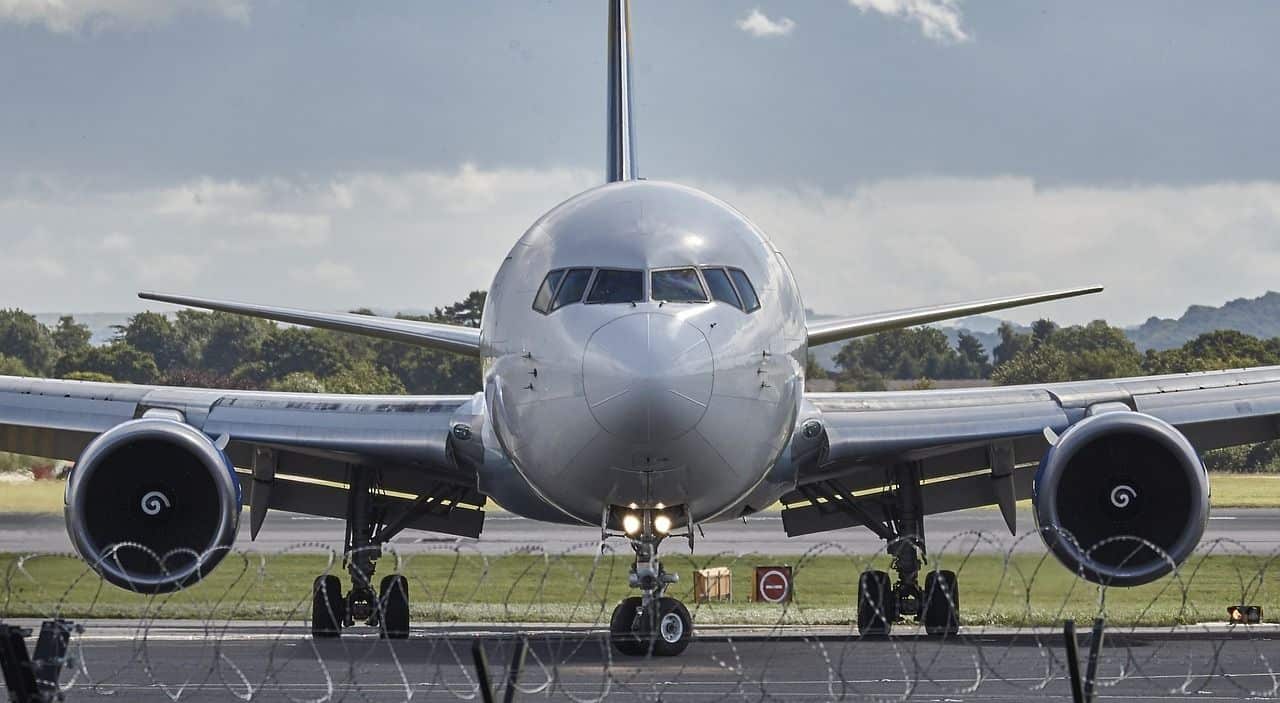Here are the basics about the first of the two types of Points in the world of Travel Hacking: Fixed Value Points.
As a reminder, our main focus here at Flytrippers is to spot really amazing flight deals. But we figured if you like to travel for cheap, you should also like to get free travel (we sure do). So that is why we are launching a Travel Hacking section, with much more content to come.
Let’s just remind you of the 2 types of Points/Miles for free travel:
- Fixed value points (so a flight / hotel costs a variable number of Points)
- Variable value points (so a flight / hotel costs a fixed number of Points)
This is the article about fixed value points, part 2 of 4 articles on how points work. Read the first part for the introduction and the basics of points, because we won’t repeat everything here.
Fixed value points are a perfect type of Points to start with, if you don’t travel much or want to keep things simple. You earn points and apply them directly to the cost of your flight or hotel, it’s very simple.
But it gives you less value, because by their very nature, Fixed Value Points will never allow you to find a great redemption that gives you more for your Points (because they have a fixed value).
Here are the detailed explanations on Fixed Value Points (and click here for Variable Value Points).
Fixed Value Point Basics
If you want to keep Travel Hacking simple, this method is really by far the easiest. The points have a fixed value, there are no calculations required.
As you may have guessed, like everything else about Travel Hacking (and even the travel world in general), the simpler and more convenient it is, the less you get for your money. It’s quite normal, convenience has a price. Most people take the path of least resistance and in Travel Hacking, that’s using simple, easy-to-understand and super flexible Fixed Value Points, and the path of least resistance is rarely the most rewarding.
For example, 15,000 Scotia Points are always worth $150, that’s it, no math involved. Let’s compare that with Canada’s most widely used Variable Value Point, the Aeroplan Mile. For 15,000 Miles you can get either $150 worth of free travel… but if you use them right, you can also get $600 worth of free travel. Now that’s a great redemption.
But there’s no such discrepancy with Fixed Value Points: their value is fixed. You still get free travel, but they won’t give you as much value, at least not compared to variable value points. But Fixed Value Points are infinitely simpler to use.
How to use fixed value points
A flight or hotel will cost the same number of points as the cash price, so you can never get an exceptional use out of it, you will never get more value from your points than if you would have paid in cash.
That’s why we say it’s a fixed value: no matter what the trip, 1 point will give you 1 cent off for example (the exact amount varies by program). So the number of points required for a flight or hotel will vary, depending on the cash price (i.e. supply and demand, in short the normal pricing mechanism for travel). You’ll never get a “great redemption”, but you’ll still get free trips.
With these programs, your points are simply exchanged as if they were money, with a fixed value. As a travel credit essentially. For example, the 35,000 BMO Points you can currently get for free with the BMO World Elite card are worth $245, because they are used as if they were cash, at $0.007 per Point, it’s very straightforward.
Most fixed value programs let you apply Points to any travel expense: Points are simply a currency that you use to pay for, it’s really that simple. With Fixed Value Points, you get to apply to the total amount of the purchase, which includes taxes for flights.
You will not have to pay in cash, instead you can use your Points and save your money. But you can never get outsized value, because it’s just $245 worth of Points for $245 worth of travel, you never get a “discount” if you can put it that way. This is why very few Travel Hacking experts (including ourselves) will prioritize Fixed Value Points, because there is so much more value to get with sweet spot redemptions of the other type of Points (the variable value Points).
What are the types of Fixed Value Points
These are essentially the rewards programs of financial institutions: RBC Rewards, AMEX Membership Rewards, BMO Rewards, CIBC Aventura, TD Rewards, etc.
In our next articles, we will compare all these programs and give you more details on each, because as I said, they are not created equal at all. I’ll give you a few examples of particularities some of the above Fixed Value point programs have in the last section.
But in the meantime, you can’t go wrong with the best credit cards in Canada, our ranking of the best offers in the market. There are a lot of details included with each card, with much more to come. And if you still don’t feel like you want to spend a lot of time reading all about the details, we also have a new membership Club for those who want to start Travel Hacking without having to learn everything on their own (and get $1,000 in free travel this year).
The exception for airlines
As I just alluded to, there are exceptions, because nothing is simple in this world. Some non-bank programs are also fixed value programs. Most airlines have Points programs that are not fixed value, but this is not always the case for non-traditional airlines (often called low-cost airlines but it is absolutely not the same thing as ultra low-cost carriers… again, nothing is simple).
For example, WestJet Dollars points are fixed value points. If you get the RBC WestJet credit card that gives you 250 WestJet Dollars (or WestJet Points, call them however you want), you simply get $250 off, just like bank programs. So it’s a fixed value. But in their case, it only applies to the “flight” portion and not to taxes, unlike bank points.
For Southwest Airlines and JetBlue in the United States, two other low-cost carriers (again, not ultra low-cost) have similar Fixed Value programs. Some traditional airlines like Delta also have a strange program that is based on the cash price, but not quite fixed value, but this is one of the few exceptions of its kind, so let’s ignore Delta and their SkyPesos for this introductory article, because it’s really a unique method.
So that’s why those who travel really often will prefer Air Canada over WestJet (we all know that it’s certainly not for their prices). This is because frequent fliers do not like fixed value Points like WestJet’s, which do not allow you to double the value of your Points with smart uses as you can do with Air Canada’s Variable Value Points.
Last feature of fixed value points
Again, nothing is simple. Because there is a particularity with fixed value points, i. e. they are sometimes also hybrid points or flexible points (again, both mean the same thing).
What does that mean? That these same Fixed Value Points can sometimes be used as Variable Value Points too, according to fixed price award chart (therefore just as if they were variable value Points).
That’s not all. Some Fixed Value Points are Transferable Points, i.e. you can transform them or convert them into other Points programs. For example, AMEX Membership Rewards Points can be transferred to Aeroplan or British Airways Avios Points. RBC Points are the other main transferable currency in Canada.
Transferable Points are by far the best kind of Fixed Value Points. Because they give you the option to be used very easily if required, but also the option to be transferred into programs that can give you quite a bit more value.
That’s why transferring Points to Variable Value Points can be very rewarding: for example, the 25,000 AMEX Points the AMEX Gold card gives you could represent up to $1,000 worth of plane tickets in certain circumstances (by transferring Points), compared to only $250 as Fixed Value Points.
So to summarize these features, sometimes Fixed Value Points are Hybrid Points that can be used as Variable Value Points in two ways (in addition to their main use as what is essentially a fixed value travel credit):
- With the program’s own flight award charts with a fixed number of points required
- With partner programs’ flight award charts with a fixed number of points required
Summary
This is the introduction to Fixed Value Points, the simplest type of points. Now read the detailed article on Variable Value Points. Do you have any questions? Ask them in the comments.
Want to see our current discounted plane tickets?
Click here to see our flight deals
Want more travel tips and inspiration?
Click here to see the blog homepage
You’ll probably enjoy this article:
How Ultra Low-Cost Carriers Work
Help us spread the word about our flight deals and travel tips by sharing this article and most importantly bookmark Flytrippers so we can help you navigate the world of low-cost travel!
Advertiser Disclosure: Flytrippers receives a commission on links featured in this blog post. We appreciate if you use them, especially given it never costs you anything more to do so, and we thank you for supporting the site and making it possible for us to keep finding the best travel deals and content for you. In the interest of transparency, know that we will NEVER recommend a product or service we do not believe in or that we do not use ourselves, as our reputation and credibility is worth far more than any commission. This principle is an essential and non-negotiable part of all our partnerships: we will never give any third-party any control whatsoever on our content. For more information on our advertiser disclosure, click here.
Travel Hacking Disclaimer: Flytrippers does not give financial advice. You should ensure travel hacking fits your personal situation and obtain professional advice if you so desire. Flytrippers may receive a commission for referrals, however our policy is to only recommend products or services we really believe in (and have ourselves). To read more on our disclaimer, click here.




